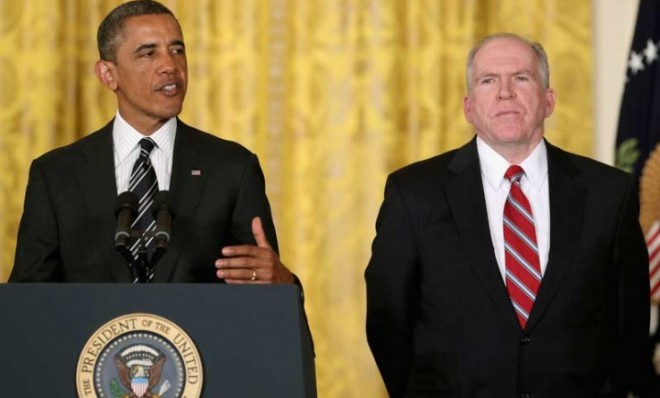The next CIA's director's challenges
What John Brennan faces after confirmation


A free daily email with the biggest news stories of the day – and the best features from TheWeek.com
You are now subscribed
Your newsletter sign-up was successful
I see no reason why the Senate won't confirm John Brennan, President Obama's chief counter-terrorism adviser, to be the next director of the CIA. There will be pro forma inquiries into his past entanglements with the NSA's domestic surveillance program and his knowledge and approval of the CIA's "Greystone" torture protocols, but he will have ready answers for the questions and he will say plenty in private to soothe the concerns of those whose concerns need to be soothed.
Assuming Brennan becomes the DCIA, as he will thenceforth be acronymed, he'll inherit a powerful spy agency facing a set of tough questions. Actually, every CIA director since the advent of the age of Al Qaeda has more or less dealt with these same issues. The daily demands of the job require tactical thinking and leave little room for attention to the bigger picture.
# Is the CIA a paramilitary force? Should it go back to its roots as a source of intelligence and warning? You see this question phrased as such a lot, but it ignores virtually all of the CIA's history, except for a period in the 1990s when the "Peace Dividend" and director John Deutch pulled back significantly on the agency's ambit. The CIA has always been both and will always be both. From the start, the agency has very broadly and probably (in an affront to the original understanding of the National Security Act of 1947) interpreted its mandate to do stuff to further American interests abroad, even and often to the point of violence, as Adam Elkus reminds us today. The question really is one of authorities and chains of command: How are American resources properly allocated? Are the mechanisms of accountability sufficient? Is there really anything better than an ad hoc framework for determining whether combined CIA-military operations are really CIA operations or military operations?
The Week
Escape your echo chamber. Get the facts behind the news, plus analysis from multiple perspectives.

Sign up for The Week's Free Newsletters
From our morning news briefing to a weekly Good News Newsletter, get the best of The Week delivered directly to your inbox.
From our morning news briefing to a weekly Good News Newsletter, get the best of The Week delivered directly to your inbox.
# There is no such thing as secrecy anymore, at least not in the way that the CIA has understood the term. We live in an era of open source everything, which means that the agency's crown jewels have very short lifespans and that public interest in what the CIA does is bound to increase exponentially. The agency has to figure out a posture on the New Secrecy that satisfies its mission while accepting the Open Source reality. Younger analysts have different expectations of how to gather and collect information and are less satisfied with the complicated and fairly broken traditional secrecy rules.
# Similarly, it is exceedingly difficult for would-be spies to come to the CIA without significant social media trails, and it is very hard for them to work in the world without leaving electromagnetic detritus for everyone to exploit and discover. How can the CIA's case officers maintain their cover identities? Is the era of fully-fledged cover identities over? Will the CIA continue to rely (and over-rely) on foreign intelligence services for critical human intelligence operations?
# The same Open Source world that hinders CIA secrecy also provides the agency with far more data than it ever imagined having. The CIA will never face a problem of not having enough intelligence. It will face the problem of having too much and not knowing what it has or how to use it.
A free daily email with the biggest news stories of the day – and the best features from TheWeek.com
Marc Ambinder is TheWeek.com's editor-at-large. He is the author, with D.B. Grady, of The Command and Deep State: Inside the Government Secrecy Industry. Marc is also a contributing editor for The Atlantic and GQ. Formerly, he served as White House correspondent for National Journal, chief political consultant for CBS News, and politics editor at The Atlantic. Marc is a 2001 graduate of Harvard. He is married to Michael Park, a corporate strategy consultant, and lives in Los Angeles.
